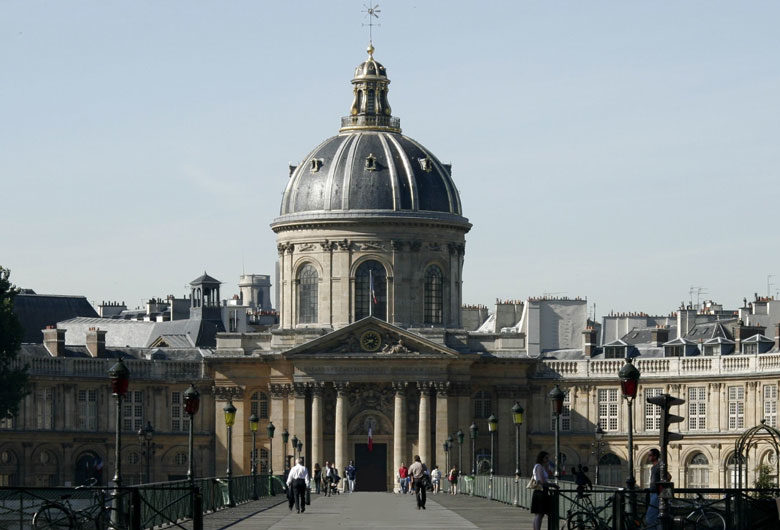What Poverty Suggests to Us: A Unique Gathering

Above: Institut de France
In the elegant meeting hall where the Académie Française, the Académie des Sciences Morales et Politiques, and all the academies of the Institut de France reside, there was a unique inter-academy conference. It was the first event hosted by the Joseph Wresinski Foundation following a symposium at Cerisy La Salle held in 2017. The conference’s guiding theme was based on what Wresinski said at the Institut in 1983: “We impose a narrative and a point of view upon those living in poverty that they do not see in themselves, and they are condemned to believe that they have neither experience nor knowledge.”
The conference included a number of round-tables.
André Vauchez, a medieval historian, led the first roundtable concerning “the memories of those excluded and rethinking history”.
Many individuals chimed in during the conversation. Axelle Brodiez-Dolino, from CNRS, agreed to write the history of ATD Fourth World and its impact.
Nelly Schenker, ATD Fourth World activist from Switzerland, stunned the assembly by describing the constant institutional violence of both her childhood and youth perpetrated by her country. She also addressed Switzerland’s official recognition of its own violence and the challenge of confronting the records of her own life that contradict all she bore witness to (Une longue, longue attente).
Evelyne de Mevius, a philosopher, expanded on Schenker’s thinking around going from perpetrator to acknowledged victim, and then to true reparation: the ability to take action to end it.
The second roundtable, ‘Merging knowledge to conceive of a common world’, was led by Mireille Delmas Marty, an international jurist.
As in the first round-table, many participants shared their thoughts. Alain Supiot, a labor law professor at the Collège de France, explained how some economists’ reduction of everything to numbers creates a violent institutional culture: it is contrary to the wisdom born from the intersection of academic knowledge and the knowledge from those primarily affected.
Martine Le Corre, Deputy Director and activist with ATD Fourth World, described the merging of academic knowledge and ideas generated by resistance to poverty. She spoke of the challenges of escaping paternalism and achieving a real merging of knowledge on equal footing.
Alain Caillé, a sociologist, linked the ideas of Joseph Wresinski to those of Marcel Mauss: human beings need to be acknowledged for giving to others. For those in poverty, the perception is that they have nothing to give. In addition, the sociologist demonstrated that the dominant trickle-down theory, “if the rich get richer the poor will also benefit”, is incorrect and begs the inverse: it is by eradicating poverty that society will improve.
Isabelle Pypaert Perrin, Director General and member of ATD Fourth World’s Volunteer Corps, explained “all thinking about us without our input comes back against us” and that the merging of knowledge allows change for all. She gave the example of the UN, which inscribed in its Sustainable Development Goals “not to leave anyone excluded”.
And finally, Mireille Delmas Marty concluded by saying that everyone is destabilized by these exchanges, but stronger in their commitment to end the injustice of poverty.
To learn more and view the video (in French) of the meeting, click here: http://www.colloque-tv.com/colloques/rencontre-interacademique-ce-que-la-misere-donne-a-penser
Photo by Nitot (CC BY-SA 2.5)

